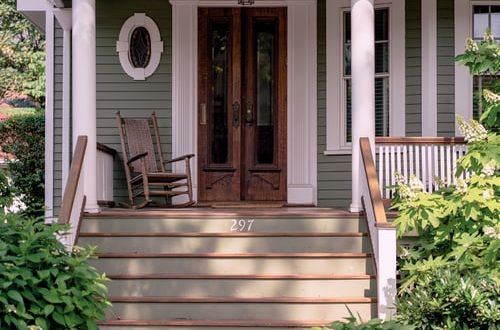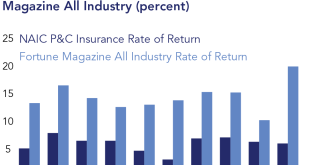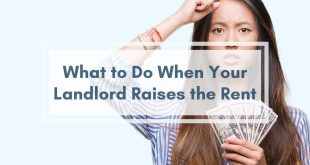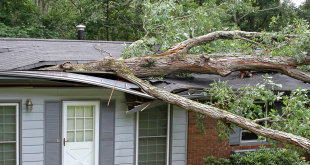Choosing the right homeowner’s insurance coverage can feel like navigating a minefield, right? I mean, who really enjoys wading through pages of legal jargon and trying to figure out what’s actually covered? But trust me, it’s one of those adulting tasks that’s totally worth the effort. After all, your home is probably your biggest investment, and you want to make sure it’s protected. This guide breaks down the key aspects, helping you make smart choices.
Understanding the Basics of Homeowner’s Insurance
What Does Homeowner’s Insurance Cover?
Okay, so what does this stuff actually cover? Well, think of it as a safety net for your house and belongings against unexpected events. We’re talking things like fire, strong winds that decide to rearrange your garden, theft (ugh, the worst), and even vandalism. It’s not just about the big disasters, though. Some policies also cover smaller incidents, like water damage from a burst pipe – something I learned about the hard way after a particularly brutal winter.
Types of Homeowner’s Insurance Policies
You’ve probably heard of HO-1, HO-2, HO-3… it sounds like some kind of robot convention, doesn’t it? Actually, these are just different types of policies with varying levels of coverage. HO-3 is super common; it usually covers your dwelling for all perils unless specifically excluded, while your personal property is covered for named perils (listed in the policy). Some policies are “named perils,” meaning they only cover events specifically listed. Others are “open perils,” covering everything except what’s excluded. Makes you wonder, which one is better for you? Food for thought.
Key Coverage Components
Dwelling Coverage
This is the big one – it protects the physical structure of your home. Think walls, roof, foundation. Now, how much dwelling coverage do you actually need? Well, it should ideally cover the replacement cost, which is how much it would cost to rebuild your home if it were completely destroyed. Don’t confuse this with market value, which includes the land and other factors. I think you’d agree that replacement cost is the way to go here. I mean, unless you are just looking for a vacant lot afterwards.
Personal Property Coverage
What about all the stuff inside your house? Your furniture, electronics, clothes… all that jazz. That’s where personal property coverage comes in. Again, you’ll usually have a choice between actual cash value (which factors in depreciation) and replacement cost. Replacement cost is usually more expensive, but it means you can actually replace your stuff with new items. Which, honestly, who wants a depreciated couch?
Liability Coverage
Okay, this is where things get serious. Liability coverage protects you if someone gets injured on your property or if you accidentally damage someone else’s property. Imagine your neighbor tripping on your wonky sidewalk or your kid accidentally breaking a window with a baseball (hypothetically speaking, of course!). Liability coverage can help cover medical bills, legal fees, and other expenses. I guess it’s always better to be safe than sorry.
Additional Living Expenses (ALE) Coverage
Ever thought about what you’d do if your house became unlivable after a fire or other covered loss? Additional Living Expenses (ALE) coverage is there to help! It covers expenses like hotel stays, meals, and other costs you incur while your home is being repaired. It can be a lifesaver when you’re already dealing with a stressful situation. Imagine camping in your backyard instead… Yeah, no thanks!
Factors Affecting Your Premium
Location
Where you live plays a huge role in how much you pay for homeowner’s insurance. Areas with high crime rates or a greater risk of natural disasters (hurricanes, tornadoes, earthquakes, you name it) typically have higher premiums. It’s just simple math, right? More risk = more money. I heard that coastal regions can be crazy expensive.
Deductible
Your deductible is the amount you pay out-of-pocket before your insurance kicks in. Choosing a higher deductible usually means lower premiums, but it also means you’ll have to pay more if you ever file a claim. It’s a balancing act. Personally, I like to aim for a deductible that I can comfortably afford without breaking the bank.
Claims History
Your past claims history can definitely impact your rates. If you’ve filed multiple claims in the past, insurance companies might see you as a higher risk and charge you more. It’s kind of like getting a speeding ticket; it stays on your record for a while.
Credit Score
Believe it or not, your credit score can also affect your homeowner’s insurance rates in some states (but not all!). Insurers argue that people with lower credit scores are more likely to file claims. It might seem unfair, but it’s something to keep in mind. That said, always check your local regulations because this isn’t universally applied.
Tips for Choosing the Right Coverage
Assess Your Needs
Before you start shopping for homeowner’s insurance, take some time to assess your individual needs. How much coverage do you really need for your dwelling and personal property? What are your liability risks? Do you need any additional coverage, like flood insurance? Thinking about these questions beforehand will help you make informed decisions.
Shop Around and Compare Quotes
Don’t just settle for the first quote you get. Shop around and compare quotes from multiple insurance companies. Prices can vary significantly, and you might be surprised at how much you can save by doing your homework. I find online comparison tools pretty handy for this.
Read the Policy Carefully
I know, reading insurance policies is about as exciting as watching paint dry. But trust me, it’s important to read the policy carefully and understand the terms, conditions, and exclusions. You don’t want to be caught off guard later when you try to file a claim. If something’s unclear, ask your agent to explain it in plain English. And hey, if you’re feeling extra cautious, maybe grab a friend and make it a reading party! Okay, maybe not, but you get the idea.
Consider Additional Coverage
Depending on where you live and your individual circumstances, you might need additional coverage beyond a standard homeowner’s policy. Flood insurance and earthquake insurance are two common examples. Also, think about an umbrella policy for extra liability protection. It’s really about tailoring your coverage to your specific risks.
Working with an Insurance Assessor
What is an Insurance Assessor?
Okay, so what happens when things go south and you need to file a claim? That’s where an insurance assessor comes in. They’re basically experts who can help you navigate the claims process, especially after a significant loss. Think of them as your advocate, making sure you get a fair settlement from the insurance company.
Benefits of Hiring an Assessor
Hiring an assessor can be a smart move, especially if you’re dealing with a complex claim or if you feel like the insurance company is lowballing you. An assessor can help with claims negotiation, policy interpretation, and ensuring you receive a fair settlement. They know the ins and outs of the insurance world, and they can level the playing field. Look at it this way: if you’re not an expert, why not get one on your team?
Choosing the right homeowner’s insurance can seem daunting, but it’s an essential part of protecting your home and financial well-being. By understanding the different types of coverage, assessing your needs, and shopping around for the best rates, you can find a policy that gives you peace of mind. Don’t be afraid to ask questions and seek professional advice – after all, it’s your home we’re talking about! Maybe share some of your tips and stories. I’m all ears!
 seeme
seeme




